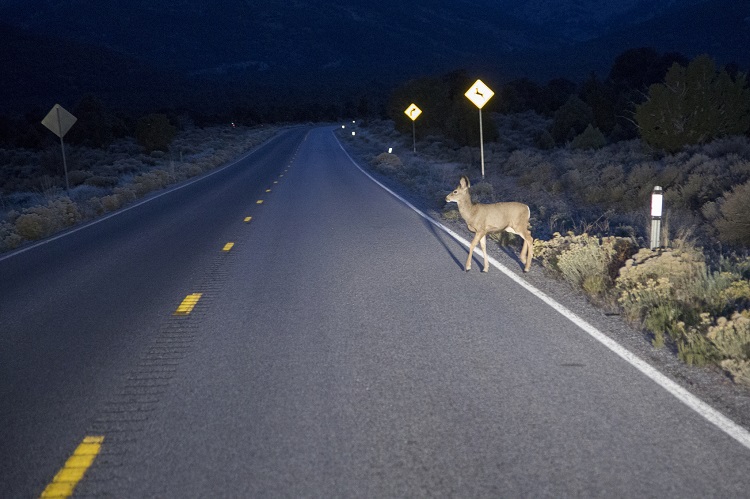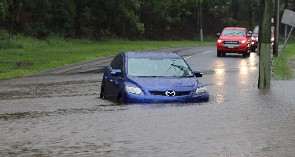Watch for Wildlife On the Road
It’s that time of year when it stays darker later in the morning and gets darker earlier in the evening. It’s also the time when animals—deer, moose, and elk in particular—are on the move and on the road.
September 27, 2016
|
Auto

It’s that time of year when it stays darker later in the morning and gets darker earlier in the evening. It’s also the time when animals—deer, moose, and elk in particular—are on the move and on the road.
Here are some tips for avoiding and handling an animal collision with your vehicle:
To avoid an animal collision:
- Stay focused while driving. Be alert, especially during dusk and dawn when animals are most active.
- Scan the road ahead of you. Use high-beam headlights when there is no oncoming traffic.
- Slow down when you see animal crossing signs, which are posted in known high-traffic areas. These are often located near woods and water.
If you see an animal:
- Slow down and stay in your lane. Swerving and hard braking could cause more injury to you and others.
- Flash your vehicle’s high-beam headlights and honk the horn to move the animal off the road.
- Animals tend to travel in herds. If you see one, there may be more in the area.
After an Animal Collision:
- Keep calm. If able, move your vehicle to a safe place and turn on your vehicle’s hazard lights.
- Call emergency services if anyone is injured. Contact the local authorities to clear the roadway or if any property has been damaged.
- Check to see if your vehicle is safe to operate. Look for leaking fluid, damaged lights, loose parts, etc. When in doubt, call a tow truck.
- Stay away from the animal. A frightened or wounded animal could harm you.
- Take photos of the roadway, vehicle damage, and any injuries sustained.
- Report the incident to your insurance company as soon as possible.
Check out the following articles for additional information:
An insurance company that cares about you and insuring the things you wish to be insured.
Get a Quote> Find an Agent>

